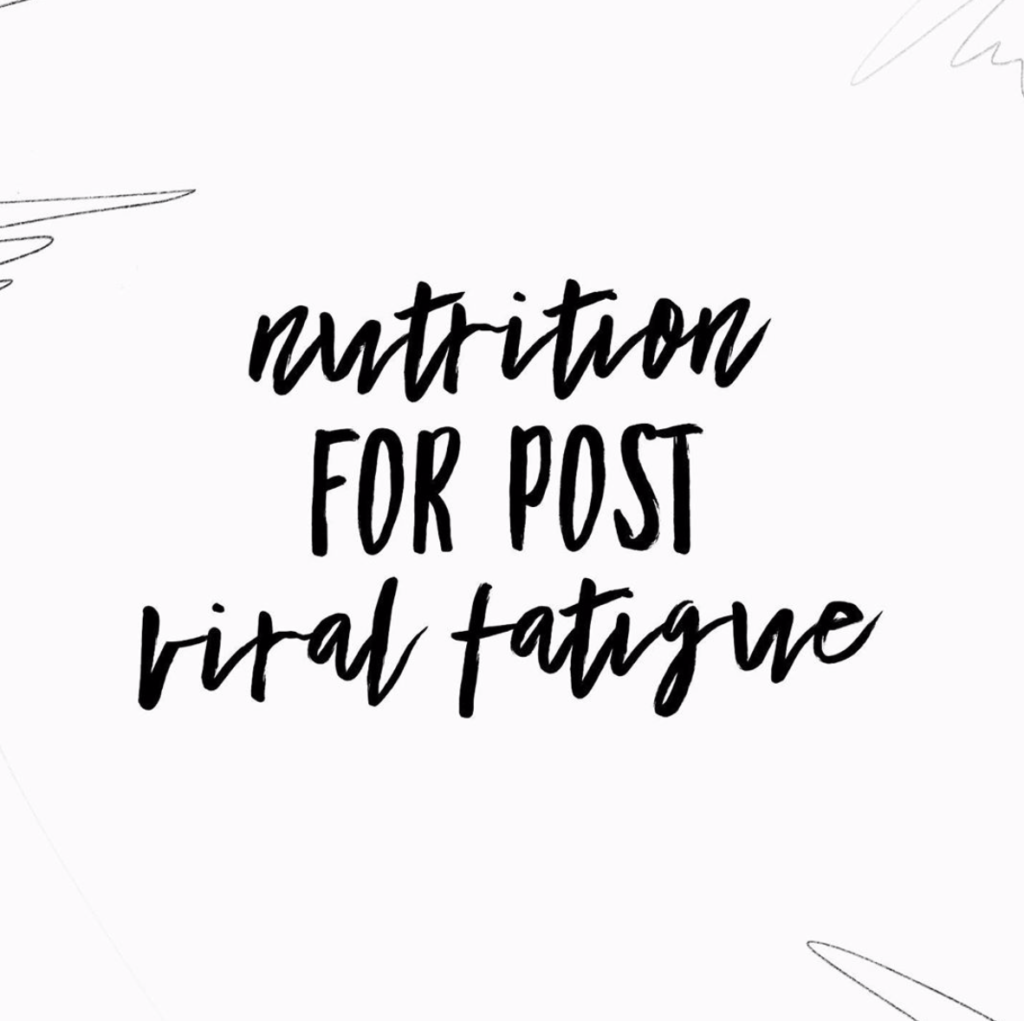For some people who have had Covid-19 there seems to be a very long recovery time and a post-viral fatigue that comes with it. I cannot imagine what that is like to go through, after being unwell to them be left struggling still weeks and months later. Having worked as part of the Chronic Fatigue Team I know how frustrating it can feel and how you just want a magic cure. Sadly, there are quite a few people offering magic cures in the form of supplements right now. The evidence we have is that there is no magic supplement, instead aim for BALANCE across life: activity levels, nutrition and stress. Having said that do ensure you are taking a Vitamin D supplement daily, especially if you are not able to get outside in the sunshine.
If fatigue is a factor then it may be hard to prepare meals, food shop and complete large meals. Your appetite may be smaller. Taste changes may mean food is not as appetising or you may have swallowing difficulites after an ICU stay. You can see how many factors could affect your nutrition. Getting help is key, as is the planning.

- Ask friends and family to help with shopping, food prep and cooking.
- Prepare meals ahead of time so they just need to be heated up.
- Eat smaller meals but snack in between on mini meals like cheese and crackers with grapes, hummus, veg and oatcakes, nut butter on toast with banana, wholegrain cereal with milk and berries.
- Quick meals can be nutritious. Tinned soup with a wholemeal roll, beans on toast with cheese, a tuna sandwich with salad, scrambled eggs on toast, pasta with pesto and frozen veg or a fast stir fry can be made in minutes.
- When you have some energy try to cook in bulk. A slow cooker can be useful if you have one or a large pan so you can cook double and freeze half.
- Reduce or cut out alcohol, caffeine and too many sugary foods as these can give you a boom and bust with a surge of energy then a crash.
- Allow yourself foods you really fancy and want to eat.
- Try online shopping if you can or a meal prep box.
- Chew your food well to help with digestion and the release of energy from it.
- If you get full or too tired, come back to the meal later.
Foods to Focus on:
- Stick to wholegrain versions of foods where possible as these can help give you more fibre and slow the rate your blood sugars rise.
- Eat protein with your meals, foods like eggs chicken, nuts, tofu, beans and lentils.
- Keep adding in those fruit and vegetable portions for the antioxidants, vitamins and minerals.
- Keep hydrated with water, milk, no added sugar squash or decaffeinated drinks.
- You still need some fats in your diet. Now is not the time to diet. Olive oil, olive, avocado, nuts, seeds, dairy foods and oily fish can be good options.